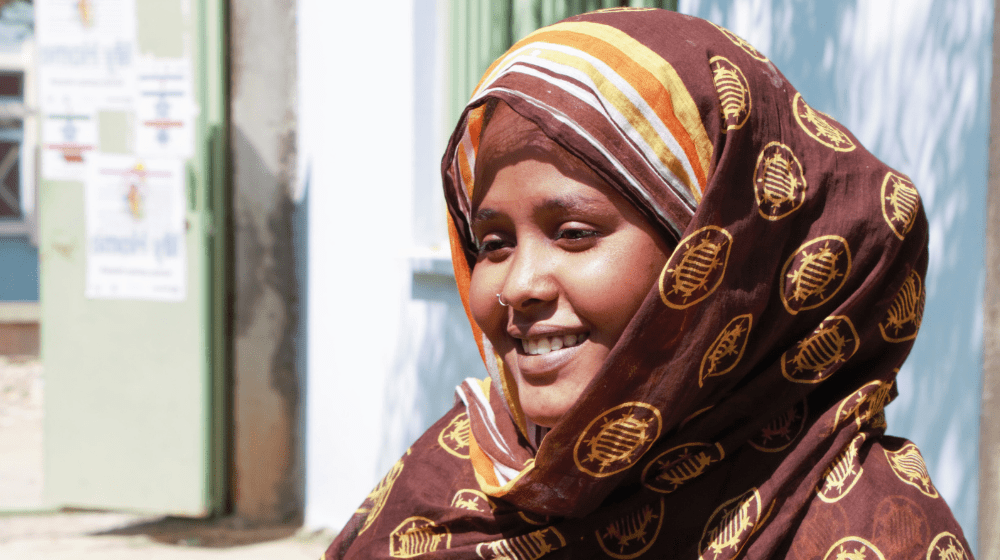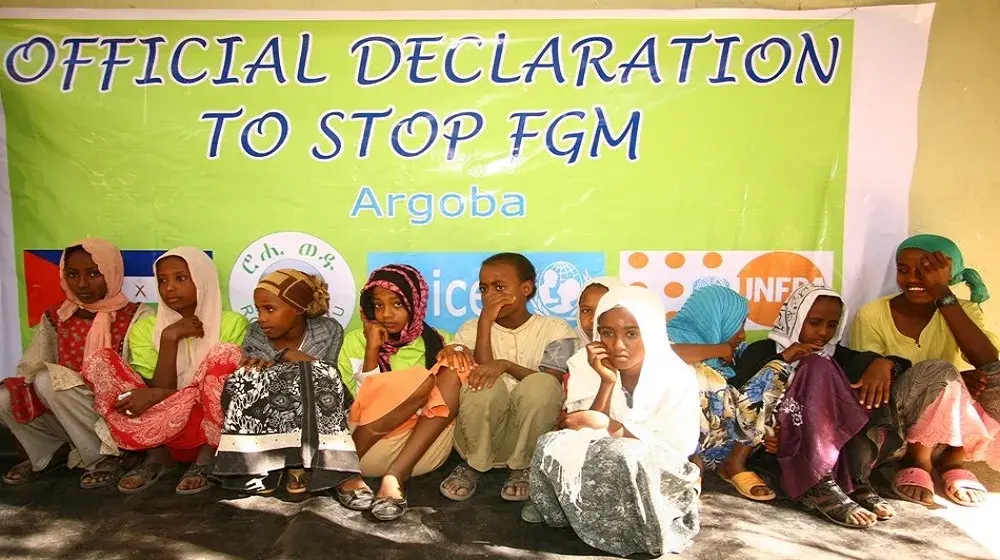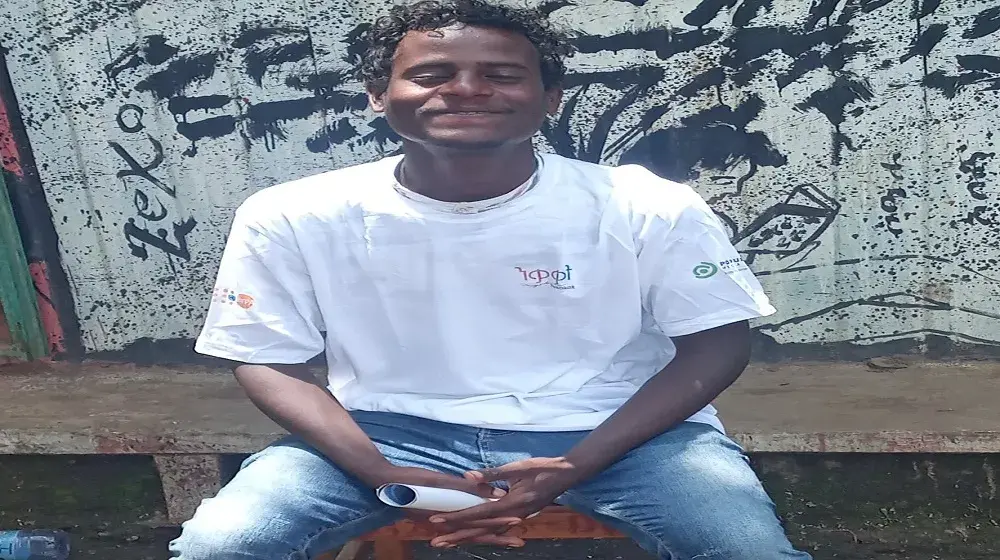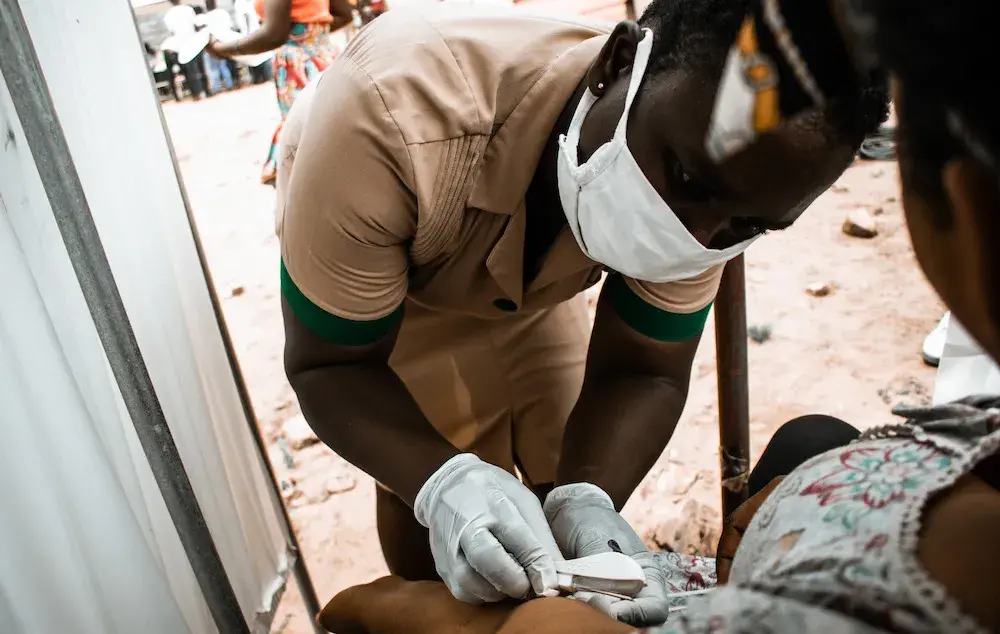Fifteen-year-old Halima Deresa is a facilitator of the unmarried girls’ club at the Abala High School where she is going in the 11th grade. She says they discuss in the club on issues related to child marriage, female genital mutilation (FGM) and gender-based violence. The discussions resumed recently after being stalled for long due to the COVID-19 pandemic and the 2 years plus conflict that ravaged northern Ethiopia.
Halima reminisces how difficult and unbearable those times were subjecting young girls like her to quite a lot of suffering. The incidences of child marriage and FGM rose considerably during that time. Many girls also succumbed to gender-based violence. Halima was not spared the ordeal. Since the time of the COVID pandemic her parents were putting pressure on her to get married. Her brother was even physically assaulting her when she refused to oblige. “I was very much aware of the harms of child marriage and was fighting with my parents not to marry me off before I finish school. I have also heard stories of my school mates who got married at a young age during that time and had a difficult childbirth experience,” she says.
This year her parents were making earnest preparations to throw a wedding to marry her off to an older person. When Halima learned about this she ran away from home and stayed with her uncle for two months. She brought her case to the attention of the Abala District Women and Youth Affairs Office saying that she had no intention to marry and that she wants to continue her education. The District Women and Youth Affairs Office intervened. “We convinced her parents to take her back home and not to push her to get married without her consent explaining the consequences on her health and future prospects,” states Hasna Inahaba, Head of the Abala District Women and Youth Affairs Office.
Supporting community mobilization
The Afar Region Women and Youth Affairs Bureau, represented by its subsidiary in the Abala District, the Women and Youth Affairs Office, is overseeing the implementation of the Integrated Project on Prevention of Child Marriage and FGM. UNFPA is supporting the project with funding from the UN Association in Sweden. The project was piloted in the Afambo District in 2012 and was later scaled-up to the Abala District in the region. The project has registered quite remarkable results where all the localities in the pilot district publicly declared abandonment of both harmful practices. Promising strides were being made in the 13 localities of the Abala District in the abandonment of both harmful practices until they were jeopardized by the humanitarian crisis triggered by COVID-19 and the northern Ethiopia conflict.
Several girls who were Halima’s school mates were not so lucky as they got married at a young age and dropped out of school. As many communities were displaced due to the conflict, the efforts that were being made in preventing child marriage and FGM through the strong mobilization of communities were derailed to the detriment of the young girls. The displacement of communities has also meant that less students, especially female students, are now enrolling in schools like the one Halima is going to. Speaking about the girls’ club she facilitates at her school, Halima says “an average of up to 50 female students used to participate at a time in the biweekly discussion we were holding; but now not more than 15 female students are participating.”
Halima is sharing her experience in the girls’ club discussions on the need to resist pressures from parents and relatives to get married as this would dash all their hopes. She recommends the importance of strengthening the efforts at mobilizing influential members of the community for child marriage and FGM to be abandoned. Otherwise it will be futile, she comments with conviction. She also pleads for more support from the project to bring the efforts at fighting the harmful practices back on track.
Halima wants to pursue her education up to college to become a medical doctor. It is only after that she is ready to consider marriage.





